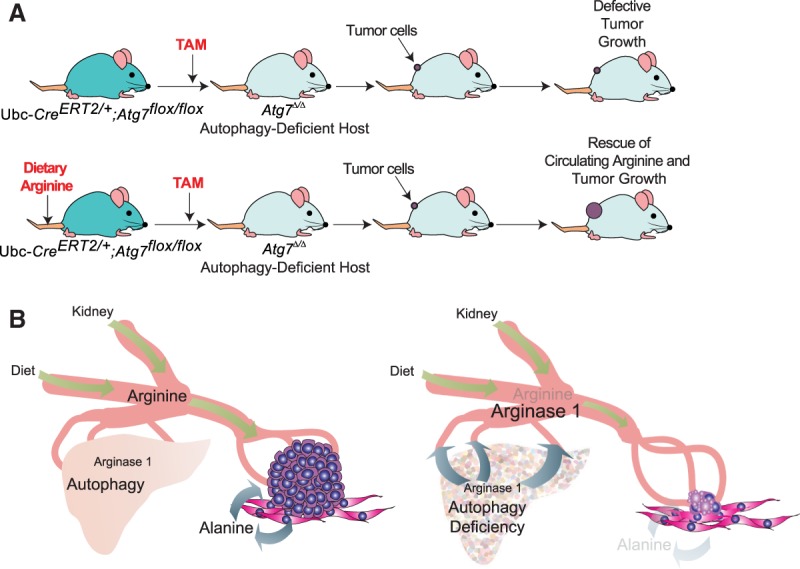Figure 4.

Host autophagy promotes tumor growth through circulating arginine. (A) Dietary arginine supplementation partially rescues tumor growth on autophagy-deficient host mice. Treatment with TAM leads to conditional whole-body deletion of Atg7. Supplementation of the mice with arginine partially rescues tumor growth in autophagy-deficient host mice (Poillet-Perez et al. 2018). (B) Nontumor cell-autonomous autophagy promotes tumor growth by sustaining the supply of amino acids that are essential tumor nutrients. When autophagy is active in the liver, the release of ARG1 from hepatocytes is prevented, thereby maintaining circulating arginine that is important for the growth of arginine-auxotrophic tumors. Loss of autophagy in the liver causes the release of ARG1 from hepatocytes into the circulation, leading to the depletion of circulating arginine and inhibition of the growth of tumors auxotrophic for arginine (Poillet-Perez et al. 2018). Similarly, loss of autophagy in the stroma cells inhibits the secretion of alanine necessary for PDAC growth (Sousa et al. 2016).
